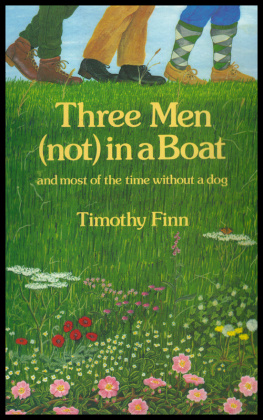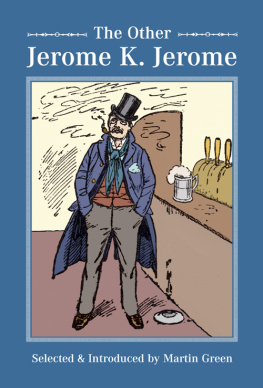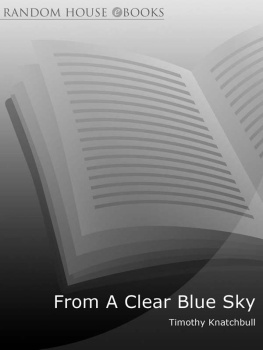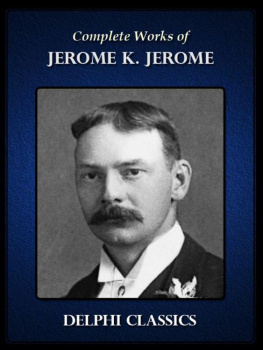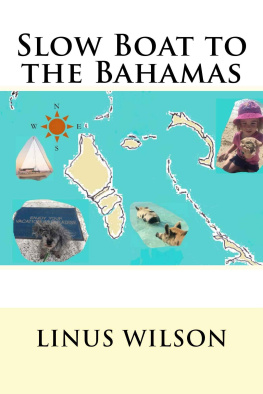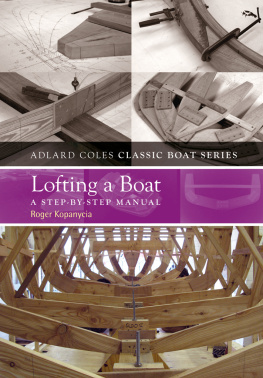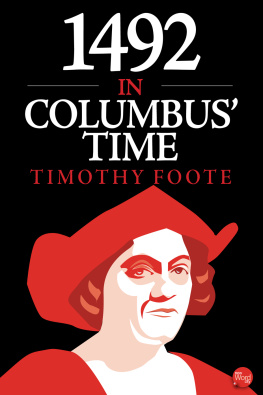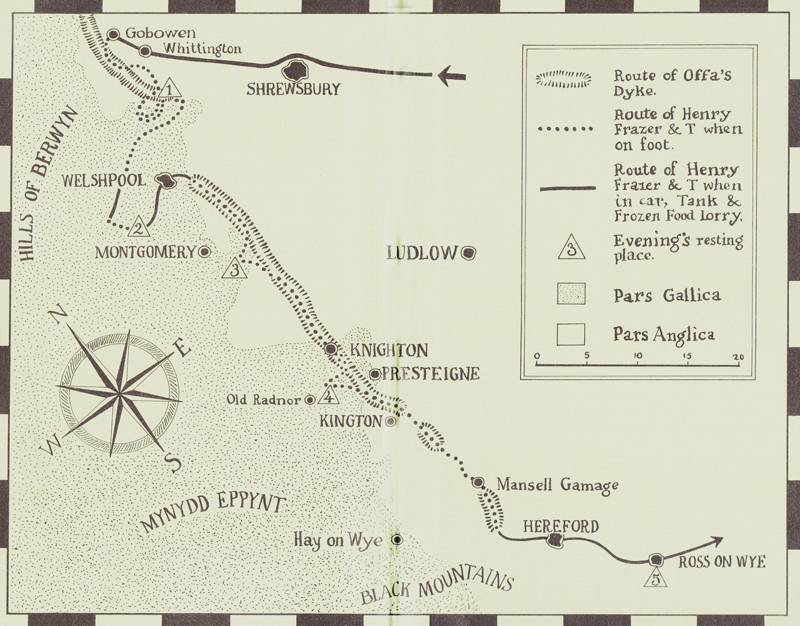THREE MEN (NOT) IN A BOAT
and most of the time without a dog
TIMOTHY FINN
With drawings by Shoo Rayner
Duckworth
Contents
For Widget.
1
Talking it Over
Fraser said: What about the Lyke Wake Walk in November?
Henry and I looked at each other knowingly.
Its a thing you have to watch with Fraser, this question of dates. Most ordinary mortals, as you know - the yous and mes of this world - carry around through life a handy little booklet known as a diary, into which they write whatever they may be doing in the future. Then, as each day comes along, they can put their nose round the corner of the page to see if they are supposed to be up to anything or whether they can go back to bed again. And if its an expensive type of diary they can get all sorts of extra information on how to convert hectares into roods and whether it is a public holiday in Jakarta. That is how peoples timetables are planned.
Not Frasers.
Fraser is one of that other band of people who run their timetable on what is called the Navigational Principle. The Navigational Principle involves no paperwork at all. The single technique is to seize on any appointment which falls within ones mental horizon and keep it to the minute, while other more distant events are given a wide berth, lost in the fog, thrown overboard, or allocated to a time so remote that nobody can seriously expect you to stick to them anyway.
That was why Fraser suggested November.
That was why Henry and I looked at each other knowingly.
We were talking about a holiday. Fraser said he was exhausted and needed a break. Not only that, but his future programme was so full that if we couldnt grab the opportunity within the next few days we would have to count him out till November.
Henry said he was exhausted too, but since he was treading the boards in the local production of Blithe Spirit the week after next, any idea of slipping off was quite out of the question for the next fortnight or so. (All this, of course, was nothing more than theatrical bluff on Henrys part. Henry wasnt treading the boards and never will. What Henry was doing was Stage Managing, which - as he interprets the role - involves nothing more than hanging around the dressing rooms telling all the performers that its nothing like as funny as the Russian tragedy they did last year.)
I also was exhausted. But I rose above this quibbling over departure times: At least, I said, were all agreed on one thing. A holiday is sorely needed.
I must say, one isnt looking for applause and back-slapping from ones friends when one makes a simple man-to-man remark like the one I had just uttered. An approving nod, a fish-like waggle of the wrist is quite enough to show that old companions are on the same wavelength. What one has no right to expect is a sarcastic clearing of the throat and an Oh ... ah ... um from Fraser, and one of those maddening, mindless cackles of a laugh from Henry as if to say Go on - pull the other one.
I knew what they were on about of course, and its a lie which I shall nail to the floor if I have to live to be a hundred to do it. They were the busy ones - that was what they were thinking; I was the slacker. They did their eight hours grind a day. I dawdled my time away in listless sybaritism and ease.
It is one of the crosses you have to bear when you become an author that nobody believes you do any work at all.
Sorry we cant help you change your tyre, Henry and Fraser will say as Mrs Wilby from the post-office runs over the same rusty nail for the third time in a week. Were off to work. Try T, they say. Old T will give you a hand.
But isnt he busy as well?
Who - T? Busy? they will murmur with smiles. Oh, no. Ts not busy. He has nothing to do. Just lolls around all day with his feet up. Between you and us hed jump at the chance of having something to keep him occupied.
Id jump all right. Jump with anger. Fraser and Henry may find it amusing to describe my working stance as lolling around, but they know perfectly well how unfair that is. What I am doing, of course, is adopting an attitude of maximum concentration, poised to snatch at any idea which may happen to float by me in the course of the day. The posture is critical: feet up, so as to increase the flow of blood to the brain where it is most likely to be needed, eyes closed to sharpen the senses, hands behind the head so that I know where to find them if I have to write anything down suddenly.
I have known authors who can stretch out, apparently unconscious, in front of a radio set and then wake up and remember whole monologues from Edward Heath on the need for interface with the Third World. Ive even heard of one who can say the monologues backwards and make them seem just as meaningful as they did the right way round. Thats concentration for you - and you dont need me to tell you that you cant reach that pitch of perfection without a lifetime of training and self-discipline. Its all too easy for a young writer nowadays to abandon himself to frivolous pleasures and simply fritter his time away in changing car tyres, taking the children to school, rodding out drains, doing the washing up, and generally listening to the thousand-and-one siren voices which would lure him away from a life of dedication and hard work - Ive done it myself in my time. Now I know better, and any indulgence of that sort is strictly kept back for the proper place and time - Easter Bank Holiday Monday in my book.
I had an object lesson in concentration at quite a young age. It was just after I had left university, when I did two or three months in an advertising agency as Personal Assistant to the Chairman, Sir Hector Botulus. Sir Hector was an important man in his profession, and he had risen to such a position of eminence that he was able to devote almost the whole of his time to thinking. The partner who interviewed me for the job told me that they preferred it that way, and on no account was I to bother Sir Hector with mundane business matters.
Sir Hector Botulus would often start thinking as early as eleven oclock in the morning and carry on right through lunch without even a break for a sandwich. In the afternoons he would go to his club for a couple of hours, and then he would reappear in the office around five oclock for a quick think before the chauffeur drove him home.
When I look back on those months which I spent with Sir Hector, I often kick myself at the chance I missed - the chance of learning from him, I mean. There was a man who had developed the art of meditation to a point which has seldom been matched, and yet I, his Personal Assistant, could find nothing better to do than give myself up to idle and irrelevant pursuits around the office. In the morning I would go through the mail with his secretary and dictate the replies for her to sign on his behalf. In the afternoons I would annotate the Association reports and paste up his press cuttings in a big folder. I even urged the partners to let me attend board meetings on his behalf. I said it might ease his load and give him a better idea of what had gone on than if he were present himself.
One day a phone call came through from the Westbury Hotel which the secretary passed on to me. It was the President of a huge American liquor group, who said that he had decided to move part of their promotional budget to Britain and he wanted to talk the whole project over with our firm. He said he was not prepared to discuss such a substantial sum of money with anybody less than the Chairman, and could I give him a time when Sir Hector would be free.
Next page
